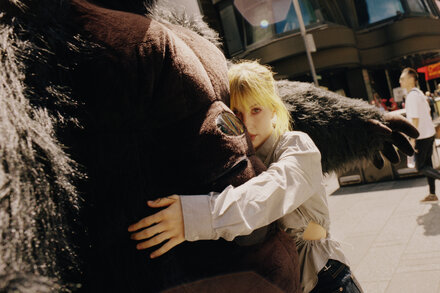
Hayley Williams, the enigmatic frontwoman of the Grammy-winning rock band Paramore, has frequently been at the center of discussions regarding her artistic identity and the shadow – or embrace – of her iconic group. The question of whether she seeks to distance herself from Paramore’s long-standing legacy is complex, often yielding a nuanced answer that, as Williams herself suggests, “it depends.”
For two decades, Williams has fronted Paramore, a band that grew from pop-punk roots to become a significant force in alternative rock, known for hits like “Misery Business,” “The Only Exception,” and “Ain’t It Fun.” Her distinctive voice and songwriting have been central to the band’s enduring success and evolution. However, her ventures into solo work have also showcased a different facet of her artistry, prompting speculation about her long-term ambitions.
The Evolving Narrative of a Solo Artist
Williams embarked on her solo career with the critically acclaimed album “Petals for Armor” in 2020, followed by “Flowers for Vases / descansos” in 2021. These projects explored more introspective and experimental sounds, distinct from Paramore’s energetic rock anthems. The albums were widely interpreted as a journey of personal discovery and artistic liberation, leading some to wonder if this signaled a gradual departure from her band.
During a recent interview, Williams reportedly addressed these perceptions directly, acknowledging the natural curiosity surrounding her dual musical paths. She highlighted the unique creative spaces each endeavor provides.
“Paramore is, and always will be, a fundamental part of who I am as an artist and a person,” Williams stated. “The bond I share with Taylor [York] and Zac [Farro] is unbreakable, and the music we make together is magic. But there are stories, feelings, and sonic landscapes that simply require a different canvas, a space where I can explore a more intimate, solitary creative process.”
Balancing Identity and Legacy
The “it depends” aspect of her relationship with Paramore’s shadow appears to stem from her ability to oscillate between these creative modes without necessarily viewing one as an escape from the other. Instead, her solo work seems to enrich her understanding of herself, which in turn, can inform her contributions to Paramore.
Williams emphasized that her solo efforts are not a rejection of Paramore but rather an expansion of her artistic range. She noted that each experience, whether solo or with the band, contributes to her overall growth and perspective.
“It truly depends on the moment, on the song, on what feels right,” she explained. “Sometimes the best thing for me creatively is to dive deep into a Paramore project with the guys, and sometimes it’s to sit alone with an acoustic guitar and see what comes out. Both are equally valid, equally important. It’s not about escaping; it’s about embracing all the facets of what it means to be a musician, to be a person constantly evolving.”
This perspective suggests that rather than seeking to escape Paramore’s shadow, Williams is more interested in defining her own light, one that is bright enough to illuminate both her individual endeavors and her collective work with the band that launched her career. Her journey continues to be one of intricate balance, where loyalty to her band’s legacy coexists with a fervent drive for personal artistic exploration.
Source: Read the original article here.





